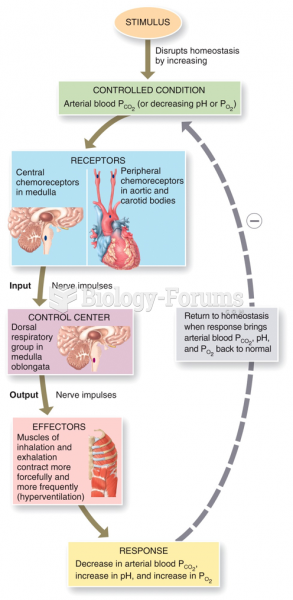|
|
|
The most common treatment options for addiction include psychotherapy, support groups, and individual counseling.
The first oncogene was discovered in 1970 and was termed SRC (pronounced "SARK").
Methicillin-resistant Staphylococcus aureus or MRSA was discovered in 1961 in the United Kingdom. It if often referred to as a superbug. MRSA infections cause more deaths in the United States every year than AIDS.
Elderly adults are at greatest risk of stroke and myocardial infarction and have the most to gain from prophylaxis. Patients ages 60 to 80 years with blood pressures above 160/90 mm Hg should benefit from antihypertensive treatment.
A seasonal flu vaccine is the best way to reduce the chances you will get seasonal influenza and spread it to others.








